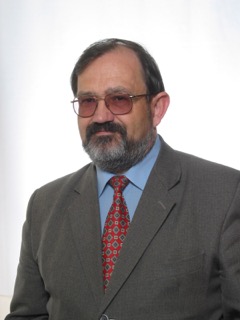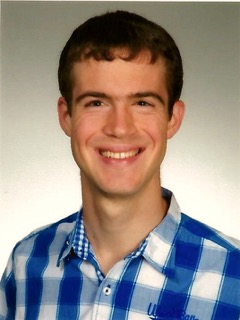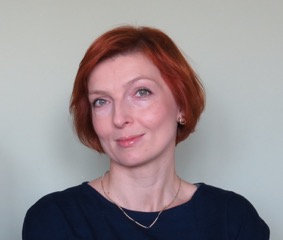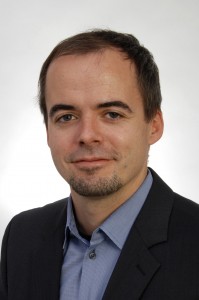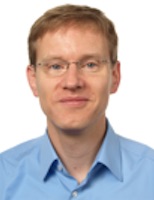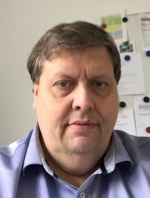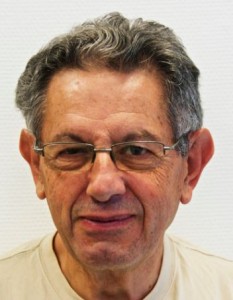 Dr. Henry Balard, Wittelsheim, France
Dr. Henry Balard, Wittelsheim, France
Dr Henri BALARD is graduated in 1967 from chemistry high school of Mulhouse, France. In 1975, he obtained a Ph.D entitled “Polyacrilonitrile oligomers : Models for the study of PAN thermal and alkaline degradation.»
He joined the CNRS in Mulhouse in 1970, where he studied the photochemical, thermal and chemical degradation of macromolecules.
After a one year post-doctoral stage in Darmstadt (Deutsches Kunststoff Institut) on living radical polymerisation. On 1978, he joined the Research Centre of Prof. J.B Donnet, where he started researches on the characterisation of solid surfaces by inverse gas chromatography (IGC).
He went on focusing his studies on assessment of the solid surface energy and/or surface heterogeneity of fillers. With Prof. J.B.Donnet, he extended IC approach to the evaluation of the adsorption properties of solids using inverse liquid chromatography (ILC).
Inverse chromatography (IC) analysis was applied to monitor the change of surface properties bound to controlled chemical, thermal or mechanical treatments.
In 2000 he founded with Dr Eric Brendlé, IGC-Lab, now named Adscientis, where he strongly contributed to develop the application fields of the IC technology.
He is the author of 135 publications, 73 of them devoted to IC science. He has presented about 150 communications and conferences.
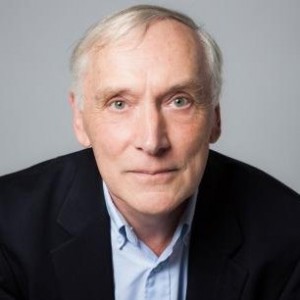 Prof. Steven Abbott, Ipswich, UK
Prof. Steven Abbott, Ipswich, UK
Prof. Abbott has an Oxford/Harvard chemistry PhD and is an expert in the chemicals and coatings industries. He is now independent and his consulting style is to bring “live” scientific principles to address difficult formulation issues in adhesion, surfactants, packaging, cosmetics, organophotovoltaics and more. He is well-known for his Practical-Science series, including Practical-Chromatography where he attempts to give away as much of his knowledge as possible in the form of apps that package complex science into live tools that explain key aspects of solubility, adhesion, surfactants, coatings and chromatography,
Prof. Adam Voelkel, Poznan, Poland
Professor Adam Voelkel, Poznań University of Technology, Poznań, Poland graduated from Faculty of Chemical Technology PUT in 1976. Involved in the development and application of inverse gas chromatography and other chromatographic techniques in physicochemical characterization of various materials. Recently part of his group works on characterization of biomaterials including dental fillings, modified ceramic materials. His co-worker dr. K. Adamska uses inverse liquid chromatography to examine surface properties. Prof. Voelkel is author of approx.. 200 papers including chapters in several books.
Lukas Huber, St. Gallen, Switzerland
Lukas Huber studied Materials Science at ETH Zürich, Switzerland in 2008-2013. After finishing his Master thesis about “Development and demonstration of carbon adsorbents for sustainable cooling” he stayed in the lab of Building Energy Materials and Components and focused on the upscaling of a novel one-pot process of ambient-dried silica aerogel. This process was invented and patented at Empa which allows the production of silica aerogel granulate by ambient pressure drying within only 5 hours from start to finish. He continued to deal with the topic of carbon sorbents and collaborates with Dr. Ralf Dümpelmann and Dr. Eric Brendlé on the characterization of activated carbon using inverse gas chromatography.
Katarzyna Adamska, Poznan, Poland
was graduated at Wroclaw University of Technology at Faculty of Chemistry in 1999. In 2002 she started Ph.D. studies at Poznan Univeristy of Technology at Institute of Chemical Technology and Engineering.
In 2007 she got the academic degree of Doctor. Her Ph.D. thesis entitled „Determination of the solubility parameter and its components for materials used in the pharmaceutical industry” was related, mainly, to the use of inverse gas chromatography in studies of different excipients, applied in pharmaceutical formulations. This work was carried out in research collaboration with Bayer AG, Leverkusen.
The work she has been doing up to present is related to synthesis of new materials (e.g. ceramic biomaterials), their modification and estimation of bulk and surface properties of different materials by IGC, ILC.
Dr. Matthias Kellermeier, Ludwigshafen, Germany
Matthias Kellermeier studied chemistry at the University of Regensburg and received his Ph.D. in the group of Prof. Dr. W. Kunz with a thesis on biomimetic crystallization, for which he was awarded the Starck Prize for Solid State Chemistry and Materials Research. From 2011 to 2013, he worked as a postdoctoral researcher at the University of Konstanz with Prof. Dr. H. Cölfen, studying principles of self-organization and basic mechanisms of mineral nucleation and growth. In 2013, he joined BASF SE as a Research Scientist in the Department of Material Physics, where he works on topics ranging from crystallization control over polymer-surfactant interactions to the design and physical characterization of functional surfaces.
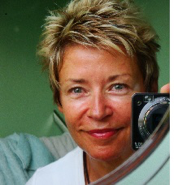 Genevieve Lacroix, Paris, FRANCE
Genevieve Lacroix, Paris, FRANCE
was graduated in 1982, from Chemistry Highschool of Lyon (CPE Lyon).
She obtained her Industrial thesis in 1985, about «development of chromatographic methods for the caracterization of petroleum fragmentations».
She was manager of Physico-chemical analysis Laboratory of the Research center of SNPE (société Nationale des Poudres et Explosifs), now named HERAKLES, subsidiary of SAFRAN Group, from 1985 until 1998
From 1998 until 2013, she was Resarch Projects Manager, above all on nanomaterials evaluation and interfaces problematic in energetic Applications.
From 2013, she is Expert in her Society, in Polymers and Surfaces and Interfaces caracterization.
Prof. Martin Kuentz, Muttenz, Switzerland
Martin Kuentz is since 2007 a professor of pharmaceutical technology at the University of Applied Sciences and Arts Northwestern Switzerland. He leads a research group in the area of Quality by Design of oral dosage forms with a particular focus on oral lipid-based formulations. Several projects in the research group target a better understanding of oral formulation performance. Particular interests are about gaining insights into the formulation microstructure and to study drug release, which involves in vitro digestion in case of lipid-based systems. Different non-invasive analytical tools are used such as, for example, Raman spectroscopy, UV imaging, ultrasound analysis, and diffusing wave spectroscopy. Pharmaceutical systems are further studied by different surface analytics, e.g. inverse gas chromatography and different imaging techniques. The research group was in several projects making use of mathematical modeling to gain a better understanding of dosage form performance, which should ultimately provide guidance to pharmaceutical scientists.
Prior to his academic assignment, Dr. Kuentz spent almost seven years in pharmaceutical research at F. Hoffmann-La Roche Ltd. in Basel. He was a senior scientist and departmental coordinator of assigned galenical development projects. Prof. Kuentz had among different functions the role of a global contact person in the area of lipid-based drug delivery systems. Martin Kuentz earned his Ph.D. in 1999 in the group of Prof. Leuenberger at the University of Basel (Switzerland), where he also graduated earlier as a pharmacist in 1995.
Prof. Kuentz has published more than 70 research articles in peer-reviewed journals and has given numerous scientific presentations at international congresses. Prof. Kuentz won national and international prizes for his research activities and he is a member of the American Association of Pharmaceutical Scientists (AAPS), the “Arbeitsgemeinschaft der Pharmazeutischen Verfahrenstechnik” (APV), the Swiss Society of Industrial Pharmacists (GSIA), and of Catedra Iberoamericana-Suiza de Desarrollo de Medicamentos (CISDEM).
Dr. Thomas Koch, Leverkusen, Germany
Dr. Thomas Koch was born in 1965 at Hof/Saale, Germany. In 1993 he finished his studies with diploma in Technical Physics at University of Bayreuth. At the Department for Experimental Physics III of University Bayreuth (Prof. J. Küppers) he became specialist for surface analysis by spectroscopical methods, for epitaxial growth by evaporation and sputtering as well as for SPM (Scanning Probe Microscopy) at variable temperatures. From 1999 to 2008 he worked at the Institute of Nanotechnology, KIT and the Institute of Applied Physics, KIT (Prof. Th. Schimmel) as specialist for method development and analysis in the field of SPM- and EM- (Electron Microscopy) based nanostructuring and microscopy as well as for Nano Electronics and Nano Electrochemistry. 2006 he made his PhD within an international collaboration with the topic of development and characterization of thin layers of stoichiometric MgB2 (Prof A. Sidorenko, ASC Moldova). From 2008 to 2010 he was postdoc within the Cluster of Excellence at the Chair for Particle Technology (Prof. W. Peukert, LFG) of Friedrich-Alexander University Erlangen-Nuremberg and there responsible for the subjects ‘forces at interfaces’ and ‘particle mechanics’. Since 2011 he works for KRONOS Int. Inc., a TiO2-producer, at Research Services as manager of the department Analytical Intelligence.
